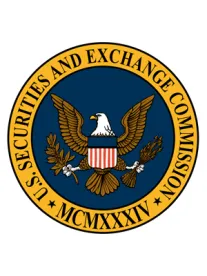Underscoring the need for independent trustees to act vigilantly, a recent SEC consent order issued in an enforcement action imposed discipline on a mutual fund's independent trustees, its investment advisor, and the investment advisor's principal in connection with the trustees' failure to obtain sufficient information before approving the fund's advisory contract. Although the case dealt with the requirements imposed on boards of registered investment companies under Section 15(c) of the Investment Company Act, the case also may serve as a reminder to trustees, directors, general partners, and service providers of other investment vehicles that diligence may be required before taking or approving action affecting investors' interests.
In Commonwealth Capital Management, LLC, Release No. 31678, June 17, 2015, the trustees for a series of mutual funds requested certain information from the funds' advisor so that the board could evaluate the reasonableness of the fees and determine whether to approve the advisory agreement. Independent counsel for the trustees had prepared a questionnaire requesting that the advisor supply information the board was required to consider under regulatory guidance for Section 15(c) – including information about advisory fees paid by comparable funds and the nature and quality of the advisor's services. The advisor responded to the questionnaire and provided a "board book" with the information for the board to consider.
The SEC determined, however, that the board book did not provide all the information that had been requested, that the trustees failed to follow up with additional requests, and that the trustees violated their obligations by approving the advisory agreement without the required information. In particular, the advisor did not provide information regarding fees paid by comparable funds and, although the advisor had indicated that it would use sub-advisors, the advisor did not specify the services to be provided by the advisor itself and the services to be provided by the sub-advisors.
In these circumstances, the SEC found the trustees and the investment advisor willfully violated Section 15(c) and imposed a fine of $50,000 on the advisor, an additional $50,000 fine on an inside trustee who was a principal of the investment advisor, and fines of $3,250 on each of the independent trustees. The SEC took this action even though the advisor earned no fees at all during the relevant period and had reimbursed the funds for a majority of their operating expenses in accordance with an expense limitation agreement.
The SEC order also includes additional regulatory action concerning a separate series of funds managed by the same investment advisor. In that instance, the SEC found that the investment advisor had provided the trustees for this series of funds (who were not charged with wrongdoing) with inaccurate information about fees paid by comparable funds as well as other information that was inaccurate or incomplete.
The order in Commonwealth Capital Management shows, once again, that the SEC expects trustees and other fiduciaries to critically review the information relevant to their decision rather than merely rubber-stamp the information they are given.




 />i
/>i

